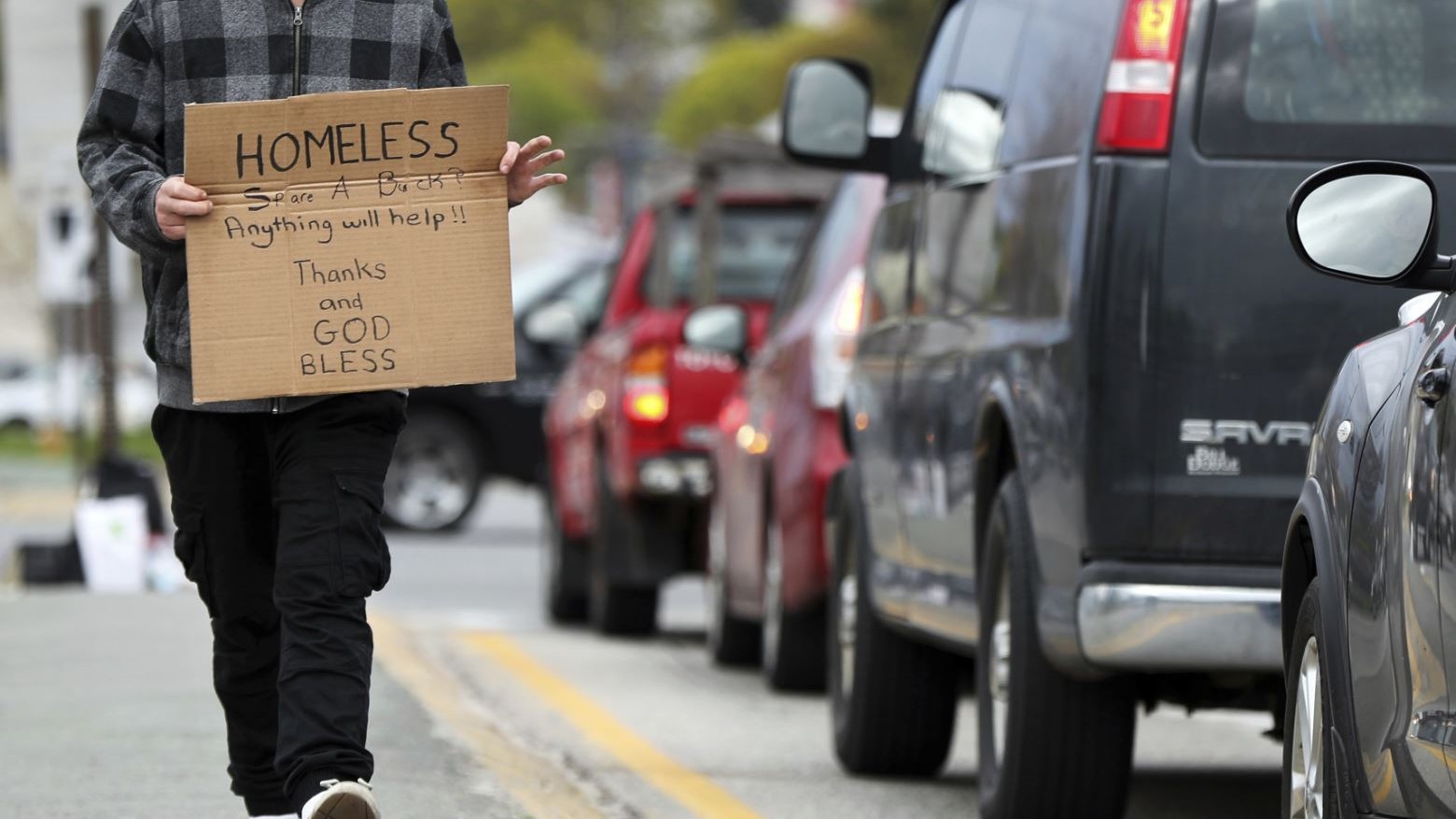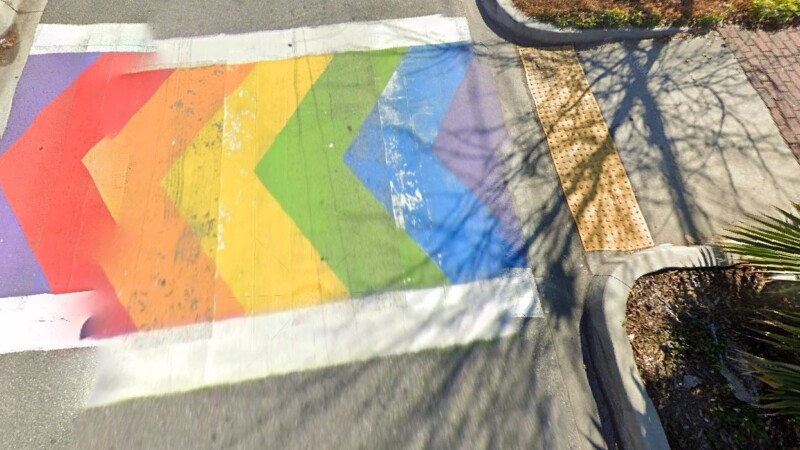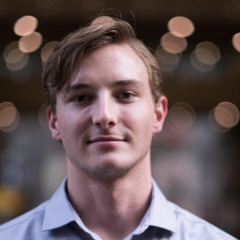A federal judge is set to decide if he will temporarily pause Jacksonville’s enforcement of a local ban on panhandling while the city fights a lawsuit arguing its ordinance violates free speech rights.
U.S. District Judge Tim Corrigan didn’t indicate how he planned to rule on the requested pause, but he did needle city attorneys with some pointed questions about the panhandling ban’s scope during a hearing on Friday.
Corrigan heard arguments for and against a preliminary injunction that would halt enforcement of the ordinance, which the City Council enacted last year. The injunction is one action sought in a federal lawsuit filed against the city on Feb. 26.
City attorneys argued an injunction isn’t justified because the panhandling ban is meant to prevent vehicle-on-pedestrian crashes, claiming there’s some data to suggest these crashes have been reduced. Attorneys seeking to dissolve the ordinance argued that until the city proves panhandling causes such crashes, the ban is depriving people of rights guaranteed by the U.S. Constitution that must immediately be restored.
The judge ultimately opted not to issue a decision from the bench, instead saying he’ll decide whether to grant the requested injunction out of court. In the meantime, Corrigan asked the attorneys on both sides to decide together how they want the litigation to proceed beyond his decision on the injunction. He didn’t set any new deadlines Friday.
If Corrigan grants the injunction, it would be an early win for the plaintiff: the COSAC Foundation Inc., a South Florida-based nonprofit that produces a free newspaper, The Homeless Voice, and distributes it to motorists stopped at traffic lights statewide in exchange for voluntary donations.
The COSAC Foundation’s solicitors are homeless Floridians who distribute the newspapers on a voluntary basis. They’ve been threatened with arrest or citation by Jacksonville Sheriff’s officers multiple times since the ordinance took effect, according to the complaint, prompting them to stop distributing The Homeless Voice in the city as they had been for years.
The ordinance
Passed by a 16-3 vote of the City Council in February 2023, the ordinance now being challenged in court outlaws various forms of “solicitation” on and around many roads in Jacksonville. It also bars people from standing on roadway medians, and bans physical interactions between pedestrians and occupants of a vehicle in traffic.
The law’s cosponsors — City Councilman Kevin Carrico and two former council members, Al Ferraro and Aaron Bowman — touted it as an effort to reduce vehicle-on-pedestrian crashes, which city officials say have occurred at a nationally high rate in Jacksonville for years.
But some local leaders have criticized the law as a criminalization of desperate people seeking cash that they need to survive and have no other means to obtain.
The COSAC Foundation argues that this ordinance violates the First Amendment by banning free speech in a public forum – namely, roads and sidewalks that “are ‘held in the public trust’ and considered the ‘archetype of a traditional public forum,’” it stated in its motion for the injunction, citing past legal precedents to back up its case.
The ordinance allows people to obtain permits to engage in these solicitation activities for certain charitable purposes, but those permits can only be used for up to six days per year and are subject to broad discretion by the city for approval, with requirements including proof of at least $1 million in liability insurance coverage for solicitors.
The City of Jacksonville’s Office of General Counsel is defending it in the lawsuit. City spokesman Phillip Perry declined a request for comment from The Tributary.
Attorneys from the Florida Justice Institute and Stevenson Legal PLLC are representing the COSAC Foundation in this case.
Benjamin Stevenson, founding attorney of Stevenson Legal, told The Tributary after Friday’s hearing that the reason Jacksonville’s panhandling ban should be thrown out is simple: The city hasn’t actually proven that its high rate of vehicle-pedestrian collisions has anything to do with panhandlers.
“If you have a problem with your car, and you take it to the shop, the mechanic doesn’t say the first way to figure out the problem is ripping out your engine,” he told The Tributary.
The hearing
In Friday’s hearing, Corrigan pressed Jacksonville assistant general counsel Mary Margaret Giannini to clarify whether sidewalks are restricted by the ordinance. Giannini insisted that sidewalks aren’t an area where one can be punished for solicitation.
“I know that’s what you want it to say,” the judge said. But he contended that the language of the ordinance doesn’t make this distinction clear.
The judge raised a hypothetical of an average person trying to read the ordinance to determine if they’re allowed to solicit on a sidewalk or not. “If I can’t figure this out,” Corrigan said, “how are they supposed to figure it out?”
Giannini said careful reading is required to interpret the ordinance.
At the close of the hearing, the judge prompted Giannini to confirm that people won’t be punished for soliciting on sidewalks. “I want the city to affirm that on the record,” he said.
“Sidewalks are not regulated by the ordinance,” Giannini responded, “and so, there wouldn’t be any enforcement of the ordinance on sidewalks.”
“I accept that representation,” Corrigan said, adding that he wants “to make sure law enforcement knows that.”
Corrigan also asked the city to explain why the permitting process established by its ordinance isn’t too “onerous” for the average person. Giannini pointed out that the $1 million insurance-coverage requirement doesn’t apply to a person whom the city deems indigent. COSAC Foundation argues in its complaint that this exception is insufficient because, as a nonprofit entity rather than a human, it isn’t capable of being deemed indigent.
Giannini added that the materials needed to apply for a permit are available on the city’s website, making them easily accessible for anyone who wants to solicit regardless of income. Corrigan challenged that point.
“Do you feel that a lot of homeless people have access to computers?” the judge asked, to which Giannini said she did not know.
Giannini repeatedly cited a statistic that ranks Jacksonville at the sixth-most collisions between vehicles and pedestrians in the nation. She presented a map of Jacksonville with red dots that she said represented areas with the highest rate of traffic collisions in the city, saying that some of those dots correspond to the specific areas where COSAC newspaper solicitors say they’ve been threatened with arrest in the last year.
While it has only been about a year since the ordinance took effect, Giannini claimed Jacksonville has seen declines of 15% in the rate of vehicle-pedestrian collisions and 11% in the rate of deaths in that time.
The judge expressed skepticism about the relevance of those stats. “Are you attributing that to the ordinance?” Corrigan asked. “You don’t have any data to show that these red dots were a result of” people soliciting in roadways, he added.
Arguing on behalf of the COSAC Foundation, Stevenson emphasized to the judge that “the question of evidence” is crucial in this case. He argued that the city hasn’t done the work needed to prove that “First Amendment activity is causing these accidents.”
“The city has not investigated this,” he said. “The First Amendment cannot be sacrificed for convenience of administration. It cannot be sacrificed on assumptions.”
Stevenson told the judge that the ordinance is “relegating the COSAC Foundation to sleepy areas” as the only places it can solicit newspapers in Jacksonville, effectively revoking its free-speech rights without banning it from the city entirely.
Giannini pointed out in her arguments that the city’s ordinance is content neutral, meaning it doesn’t target any specific kind of speech.
A range of possible outcomes
While Corrigan hasn’t yet decided how to rule on the COSAC Foundation’s requested injunction, he asked the attorneys for both parties to discuss “where we go from here” out of court. That discussion will include whether the case should proceed to a jury trial — which the plaintiffs initially requested — or if it should instead be resolved through an alternative route, such as bench trial or summary judgment issued by Corrigan.
Within less than a year of the panhandling ban taking effect, the Jacksonville Sheriff’s Office had arrested 69 people and issued hundreds of citations and warnings for activities outlawed by the ordinance, News4Jax reported in February.
The ordinance, and the lawsuit challenging its constitutionality, bears parallels to a prominent case from the 1970s that’s taught in law schools to this day, Papachristou v. City of Jacksonville.
That case revolved around a city ordinance that criminalized activities associated with vagrancy such as “dissolute persons who go about begging, common gamblers” and “habitual loafers.” The U.S. Supreme Court went on to rule that this law was “plainly unconstitutional,” voiding it from the city’s books and setting a precedent for similar laws across the nation.
This story is published through a partnership between Jacksonville Today and The Tributary.







